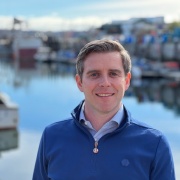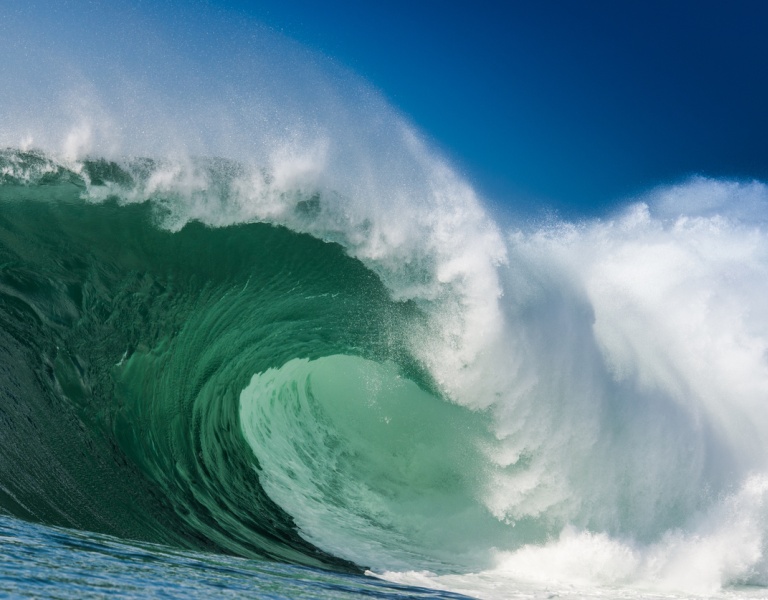Ocean Energy Systems Technology Collaboration Programme
The OES TCP Members collaborate internationally to accelerate the viability, uptake & acceptance of ocean energy systems in an environmentally acceptable manner.
The Ocean Energy Systems TCP is operating since 2001. It brings together countries to advance research, development and demonstration of conversion technologies to harness energy from all forms of ocean renewable resources, such as:
- Tides, waves & currents; and
- Temperature gradient (ocean thermal energy conversion and submarine geothermal energy) and salinity gradient for electricity generation, as well as for other uses, such as desalination.
The OES TCP Executive Committee Representatives for Ireland are Dr. Emer Dennehy (SEAI) and Dr. Brendan Cahill (SEAI).
For further information about the task, please visit the IEA OES TCP webpage.

Emer Dennehy
Emer Dennehy
Dr Emer Dennehy is Programme Manager for Offshore Renewable Energy with the Sustainable Energy Authority of Ireland. Initially qualifying as an electronic engineer, Emer now holds both a Masters and PhD in Energy Engineering from University College Cork, Ireland. Emer has nearly 15 years of experience in analysing energy systems both at national and international levels, through energy statistics analysis and senior modelling specialist roles for Sustainable Energy Authority of Ireland, as well as in the Energy Technology Perspectives Division in the International Energy Agency (IEA) from 2013 to 2016.
Contact: [email protected]

Brendan Cahill
Brendan Cahill
Brendan Cahill is Programme Manager for Innovation and International Research at SEAI. He has over 15 years of experience in the energy sector with previous roles spanning academic research, management of R&D funding programs, public policy, technology development and consultancy. Brendan earned a Ph.D. for his work on ocean energy resource characterization from University College Cork and was awarded a Fulbright Scholarship to conduct further research at Oregon State University. Brendan previously managed energy efficiency and ocean energy programmes at SEAI and has also led business development activities at two renewable energy startups.
Contact: [email protected]
Tasks
The aim of this Task is to be the premier international programme engaged in bringing together information and practitioners on the environmental effects of an ocean wave, tidal, and current energy development on the marine environment. It aims to facilitate efficient government oversight of the development of ocean energy systems by expanding our baseline knowledge of environmental effects and monitoring methods.
The Representatives for Task 4 are Dr. Anne Marie O'Hagan (University College Cork) and Dr. Emma Verling (University College Cork).
For further information about the Task, please visit the Task 4 IEA OES TCP webpage.
The aim of this Task is to enable the OES to meet its aspiration in addressing permitting and licensing issues within OES member countries.
The Representatives for Task 8 are Dr. Anne Marie O'Hagan (University College Cork) and Dr. Emma Verling (University College Cork).
For further information about the Task, please visit the Task 8 IEA OES TCP webpage.
The aim of this Task is to assess the codes currently in use globally for analysis of wave energy devices. This effort will focus on assessing the accuracy and validation process of the codes by comparing codes to codes and codes to experiments.
The Representatives for Task 10 is Prof. Tony Lewis (University College Cork).
For further information about the Task, please visit the Task 10 IEA OES TCP webpage.
The aim of this Task is to address the ongoing need to define appropriate and rigorous metrics for measuring success in a number of critical target areas of ocean energy technology development. The objective is to establish a common international stage gate metrics framework to be used by technology developers, investors and funders.
The Representatives for Task 12 are Dr. Michael O'Shea (University College Cork) and Dr. Jimmy Murphy (University College Cork).
For further information about the Task, please visit the Task 12 IEA OES TCP webpage.
Under this Task several market opportunities will be explored: ocean energy in islands, co-location with aquaculture and desalination.
The Representative for Task 15 was Dr. Brendan Cahill (ORPC Ireland).
For further information about the Task, please visit the Task 15 IEA OES TCP webpage.
Participate in the OES TCP
Interested in representing Ireland in an IEA Technology Collaboration Programme? Find out about our appointment process.
Appointment processOES TCP Outputs
2024 State of the Science Report: Environmental Effects of Marine Renewable Energy Development Around the World
OES Environmental recently released the 2024 State of the Science Report: Environmental Effects of Marine Renewable Energy Development Around the World at the International Conference on Ocean Energy in Melbourne, Australia.
The 2024 State of the Science Report, available on Tethys, brings together the most up-to-date information on potential environmental effects of marine renewable energy; shares helpful resources, such as education and outreach tools, strategies to aid consenting, and data information systems; and identifies a path forward.
The Ocean Energy Systems (OES)-Environmental country representatives from the 16 participating countries, including Dr. Anne Marie O’Hagan and Dr. Emma Verling from UCC-MaREI, helped to scope the entirety of the report and provided valuable contributions to all chapters. The input from these contributors and reviewers has resulted in the most complete compendium of research and monitoring findings possible.
